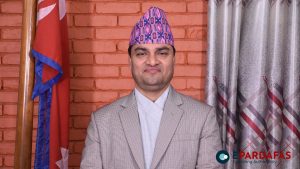
India-Nepal Startup Connect Highlights Growing Collaboration Ahead of Startup Mahakumbh 2025

The Embassy of India in Kathmandu hosted the 2nd India-Nepal Startup Connect: Curtain Raiser for Startup Mahakumbh (SMK) 2025, emphasizing cross-border collaboration in the startup ecosystem. Nepal’s Minister for Communication and Information Technology, Prithvi Subba Gurung, attended the event as the Chief Guest.
The event featured a roundtable discussion with representatives from India’s Department for Promotion of Industry and Internal Trade (DPIIT), Startup India, Federation of Nepalese Chambers of Commerce and Industry (FNCCI), Confederation of Nepalese Industries Young Entrepreneurs Forum (CNIYEF), Nepal Association for Software and IT Services Companies (NAS-IT), and several academic and business institutions. Discussions centered on fostering innovation, expanding market opportunities, and leveraging digital public infrastructure for startups in both countries.
In his address, Minister Gurung highlighted Nepal’s progress in embracing advanced IT technologies, creating new avenues for startups. He underscored the strong economic and cultural ties between India and Nepal and encouraged Nepali entrepreneurs to participate in Startup Mahakumbh 2025. Indian Ambassador to Nepal, Naveen Srivastava, spoke about India’s thriving startup culture and the rapid adoption of digital public infrastructure, which has facilitated cross-border transactions. He cited the recent interoperability between Nepal’s FonePay and India’s UPI, which saw over 400,000 merchant transactions since its launch in March 2024, as a testament to increasing digital integration.
Joint Secretary Sanjiv from DPIIT, Government of India, presented details about SMK 2025, which is expected to be one of the largest startup events, featuring over 3,000 exhibitors, 10,000 startups, and 1,000 investors, incubators, and accelerators. The event will showcase cutting-edge innovations in sectors such as fintech, AI, deep tech, agritech, climate tech, cybersecurity, biotech, and gaming. He extended an invitation to Nepali startups to take advantage of this opportunity for exposure, funding, and collaboration.
Presentations were also delivered by Umesh Kumar Gupta, Executive Director of Nepal’s Industrial Enterprise Development Institute (IEDI), and Rajendra Mootha from IIT Madras Pravartak, who emphasized the role of incubators and academia in fostering startup innovation.
Panel discussions delved into key opportunities for emerging technology startups in India and Nepal. Speakers, including TechXR CEO Prashant Mishra, F1 Soft Co-founder Asgar Ali, Khalti Wallet Founder Amit Agrawal, and Kathmandu University’s Bal Krishna Bal, highlighted advancements in digital payments, virtual reality in tourism, and citizen services in Nepal. A separate discussion focused on digital public infrastructure for social impact, where panelists stressed the role of fintech and digital governance in enabling startup growth.
Nepal’s Industry Secretary Gobinda Bahadur Karkee, in his special address, reinforced the government’s commitment to nurturing entrepreneurship and strengthening India-Nepal startup partnerships. The discussions concluded with a call for increased cooperation between startups in both countries, deeper engagement in digital innovation, and more opportunities for Nepali startups to access India’s funding and mentorship ecosystem.
The Embassy of India reaffirmed its commitment to promoting India-Nepal startup connectivity and encouraged Nepali startups, academic institutions, and investors to engage with Indian incubators by participating in Startup Mahakumbh 2025.












Comments